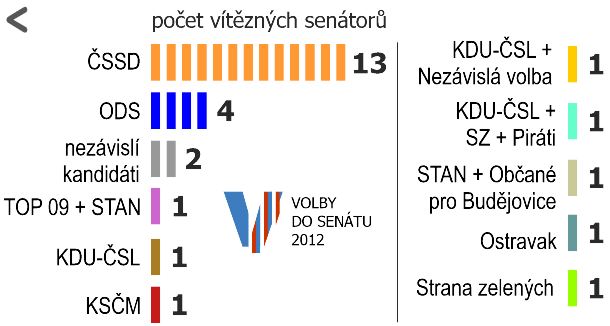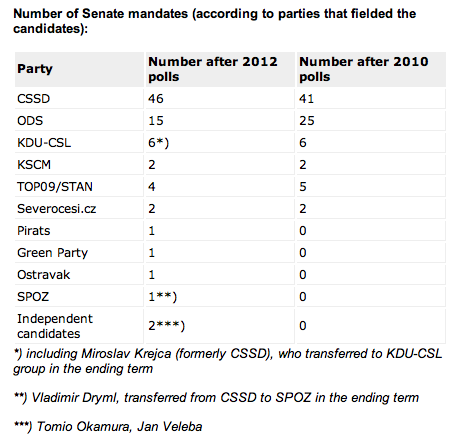In January Miloš Zeman of the Party of Civic Rights – Zeman’s people (SPOZ) was elected president. He took office in March. This began a period of cohabitation because SPOZ is not represented in the government.
That said, the situation is beautifully complex. SPOZ was a break away party from the now opposition Czech Social Democratic Party (ČSSD). Now, SPOZ is not represented in the lower house, though it does have one senator. I do not know enough about Czech politics to be sure, but this does raise the issue of whether SPOZ is a ‘real’ party. If it is, then there is definitely cohabitation. If it isn’t, then it is an open question as to whether the president is ‘really’ partisan. If not, then there would not be a period of cohabitation. If he was not really partisan any more, the situation would be similar to the one in Slovakia where President Gašparovič was once partisan, but where his party disappeared leaving him as an independent, albeit one effectively supported by SMER.
Anyway, let us assume SPOZ is a real party. The government comprises ODS, TOP ’09, and still, as I understand it, LIDEM. The Senate is controlled by the ČSSD. Here’s the rub. Art. 84 of the constitution states that “The Justices of the Constitutional Court shall be appointed by the President of the Republic with the consent of the Senate.” Today, President Zeman nominated four new justices. What would the Senate do? Without any real partisan basis, would the president’s nominees be accepted?
Newspaper reports confirm that the justices were appointed, with support for the president’s candidates ranging from 61 of 72 votes case to 53. The newspaper speculates that this suggests the president is still able to gain support from the ČSSD, even though they parted on bad company.
Apparently, a further four judges will be appointed in the summer. So, the president will have the opportunity to test his support again soon.

